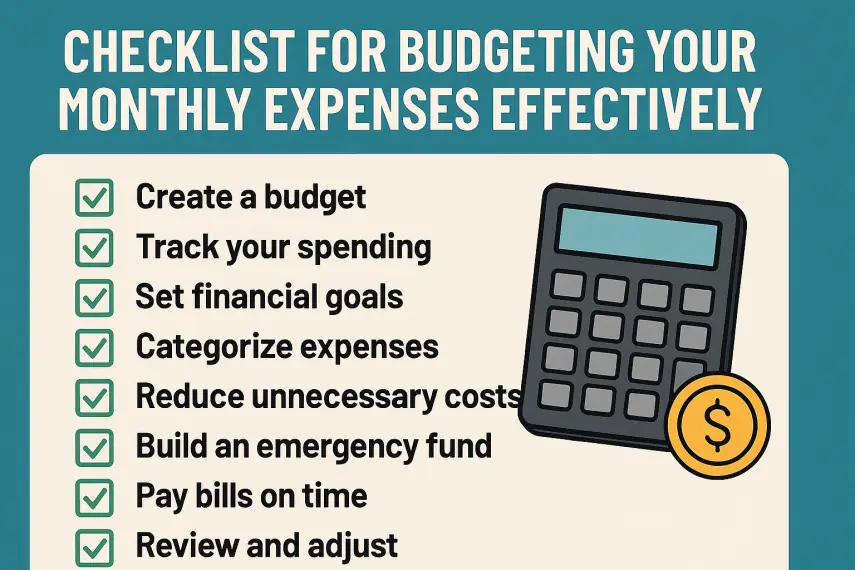
Personal Finance Strategies: How to Build Wealth and Achieve Financial Security
📑 Contents
Personal Finance Strategies: How to Build Wealth and Achieve Financial Security
Managing your money effectively can be the difference between achieving financial freedom and living paycheck to paycheck. In a world of economic uncertainty and rising costs, understanding personal finance strategies is more important than ever. This guide covers practical methods to build wealth, manage debt, invest wisely, and plan for long-term financial security.
Understanding the Foundations of Personal Finance

Personal finance encompasses all aspects of managing your money, including budgeting, saving, investing, and planning for retirement. The foundation of good financial health is a clear understanding of your income, expenses, assets, and liabilities. Setting achievable goals and tracking progress is essential for long-term success.
- Budgeting: Creating a plan for your income and expenses.
- Saving: Building an emergency fund for unexpected expenses.
- Investing: Growing your wealth through stocks, bonds, and other assets.
- Debt Management: Paying off high-interest debt efficiently.
- Retirement Planning: Ensuring you have enough to live comfortably later in life.
Creating an Effective Budget

Budgeting is the cornerstone of personal finance. It gives you control over your money and helps you avoid unnecessary debt. There are several budgeting methods, but the most popular is the 50/30/20 rule:
- 50% Needs: Rent, utilities, groceries, insurance.
- 30% Wants: Dining out, entertainment, vacations.
- 20% Savings/Debt Repayment: Emergency fund, retirement, extra debt payments.
Review your budget monthly and adjust as needed. Use budgeting apps or spreadsheets to track your spending and identify areas for improvement.
Building an Emergency Fund

An emergency fund is your financial safety net. It covers unexpected expenses such as medical bills, car repairs, or job loss. Experts recommend saving at least three to six months’ worth of living expenses.
Keep your emergency fund in a high-yield savings account, where it’s easily accessible but still earns interest. Start small if necessary—consistency is more important than the amount.
Managing Debt Wisely
Debt can be a stumbling block to financial independence. Prioritize paying off high-interest debts like credit card balances first, as they can quickly spiral out of control. Consider these strategies:
- Debt Avalanche: Pay off debts with the highest interest rates first.
- Debt Snowball: Pay off the smallest debts first to build momentum.
- Consolidation: Combine multiple debts into one with a lower interest rate.
Avoid taking on new debt unless absolutely necessary. If you’re struggling, seek help from a reputable credit counselor.
Investing for Long-Term Wealth
Investing is essential for building wealth and outpacing inflation. Start as early as possible to take advantage of compound growth. Diversify your investments to manage risk. Common investment vehicles include:
| Investment Type | Risk Level | Potential Return | Liquidity | Ideal For |
|---|---|---|---|---|
| Stocks | High | High | High | Long-term growth |
| Bonds | Low to Medium | Low to Medium | Medium | Income and stability |
| Mutual Funds/ETFs | Varies | Varies | High | Diversification |
| Real Estate | Medium | Medium to High | Low | Long-term investment |
| High-Yield Savings | Low | Low | High | Emergency savings |
Consider using tax-advantaged accounts like IRAs or 401(k)s to maximize your returns. Rebalance your portfolio annually to maintain your desired risk level.
Retirement Planning: Securing Your Future
Retirement may seem far away, but the sooner you start planning, the better prepared you’ll be. Estimate how much you’ll need based on your desired lifestyle, expected expenses, and inflation. Contribute regularly to retirement accounts and take advantage of employer matches.
Don’t forget to consider healthcare costs and potential long-term care needs. Revisit your retirement plan every few years and adjust your contributions as your income grows.
Smart Strategies for Increasing Income
While cutting expenses is important, increasing your income can accelerate your journey to financial security. Consider:
- Negotiating Raises: Research your industry and present a case for higher pay.
- Side Hustles: Freelancing, gig economy jobs, or starting a small business.
- Investing in Education: Acquiring new skills or certifications to boost your earning potential.
Diversifying your income streams can provide extra security if you lose your primary job.
Financial Planning for Families
Family finances bring additional considerations such as saving for children’s education, buying a home, and securing adequate insurance. Start a college fund early (such as a 529 plan in the U.S.) and review your insurance policies annually. Estate planning, including wills and trusts, ensures your assets are distributed according to your wishes.
Common Personal Finance Mistakes to Avoid
- Ignoring your credit score.
- Not having a budget or emergency fund.
- Carrying high-interest debt for too long.
- Chasing risky investments without understanding them.
- Failing to plan for retirement early enough.
Learning from these mistakes can help you stay on track and avoid costly setbacks.
Frequently Asked Questions (FAQs)
1. How much should I save each month?
A general rule is to save at least 20% of your income, but your situation may vary. Prioritize building an emergency fund first, then focus on retirement and other goals.
2. What’s the best way to pay off debt?
The debt avalanche method (tackling high-interest debts first) saves the most money on interest, but the debt snowball method (starting with the smallest debts) can provide motivational boosts.
3. When should I start investing?
Start investing as soon as you have an emergency fund in place and no high-interest debt. The earlier you start, the more you benefit from compound growth.
4. How can I improve my credit score?
Pay bills on time, keep credit card balances low, avoid opening too many new accounts, and regularly check your credit report for errors.
5. Do I need a financial advisor?
A financial advisor can help if you have complex finances or need personalized advice. For basic budgeting and investing, many people manage successfully on their own with research and online tools.
Summary: Building Financial Security Step by Step
Achieving financial security is a journey that requires discipline, planning, and regular review. By budgeting effectively, managing debt, investing wisely, and planning for the future, you can build wealth and enjoy greater peace of mind. Start small, stay consistent, and remember that every step you take brings you closer to your financial goals.











